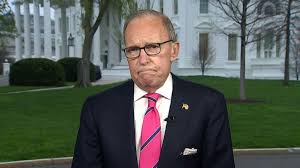Congress is still working to extend enhanced unemployment benefits in response to the COVID-19 pandemic that expired in July. I believe the debates over extending unemployment benefits parallel issues debated in the world of workers’ compensation.
Secondary gain and 70 percent
Critics of the recently expired $600 per week federal supplemental unemployment benefits argue the benefits discourage work. Insurance types also argue that workers compensation benefits discourage work. In many claims these attitudes find their way into medical records when doctors describe workers as malingering. A related concept is known as secondary gain.
White House economic adviser Larry Kudlow proposed capping unemployment benefits at 70 percent of salary. Kudlow believes this rate of payments doesn’t discourage work. It so happens that workers compensation benefits in Nebraska, and most other states, are limited to two-thirds of an employee’s average pay. So under Kudlow’s assumption, workers compensation benefits shouldn’t discourage work.
But I doubt being confronted by their own logic is going to change insurance company practices and attitudes. Insurers and self-insured will push employees to come back to work as soon as possible even if it means commuting long distances or relocating to perform meaningless work. Some employers also like to force injured workers to perform volunteer work rather than receive workers’ compensation benefits.
Supplemental unemployment and temporary partial disability
The Republican plan to cap unemployment benefits at 70 percent of wages requires states to individually calculate benefit levels for each clamant. Democrats argue this would create administrative hassles for state agencies determining unemployment benefits. Democrats argue that a flat supplemental rate is simpler to administer.
The dilemma of supplemental unemployment mirrors the dilemma of temporary partial disability or TPD. Employees are entitled to TPD when they are working for less money than they were earning before accident. TPD is meant to make up the difference between the two wage rates.
Paying temporary partial disability benefits also crates administrative hassles because it requires close cooperation between HR departments and insurance companies. Often times the difficulties of paying temporary partial disability benefits means that workers don’t receive temporary partial disability benefits.
Of course, as unemployment soars short-staffed state departments of labor have struggled to process claims and pay benefits in a timely manner. Adding more difficulty in determining unemployment benefit rates means that these delays could continue.


